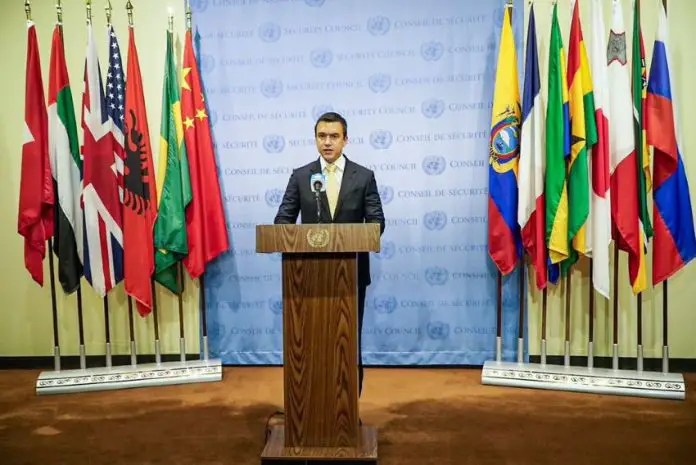The Mexican government has condemned the acts of violence carried out this week by crime groups in Ecuador, where President Daniel Noboa declared a state of emergency on Tuesday in recognition of “an internal armed conflict.”
The Ministry of Foreign Affairs (SRE) said in a statement that the federal government “is following with concern the latest developments in Ecuador and the security situation in several areas of the county, which remains delicate.”
🇪🇨#Ecuador– Ecuadorians cheering and clapping for their soldiers in a show of support in the fight against the cartel gang members. pic.twitter.com/XLtNNZNusK
— ConflictLive 🌐 (@conflict_live) January 10, 2024
“We strongly condemn the acts of violence carried out by organized crime groups and express our solidarity with the Ecuadorian government and people,” the statement said.
“We support Ecuador’s institutions to ensure the country’s stability and the protection of individuals living in or visiting Ecuador, while adhering to the domestic legal order and respect for human rights.”
There has been a series of violent attacks in the small South American nation this week — at least 30 as of Tuesday — after José Adolfo “Fito” Macías Villamar, leader of the Los Choneros gang, disappeared from a prison in Guayaquil on Sunday. At least eight people had been killed in Guayaquil, Ecuador’s largest city, by Tuesday.
Explosions, looting, gunfire and burning vehicles have been reported in Ecuador this week, according to The New York Times. There have “uprisings in several prisons” and another prominent gang leader, Fabricio Colón Pico of Los Lobos, and other prisoners escaped. In addition, four police officers were abducted Monday night, one in national capital Quito and three in the city of Quevedo.
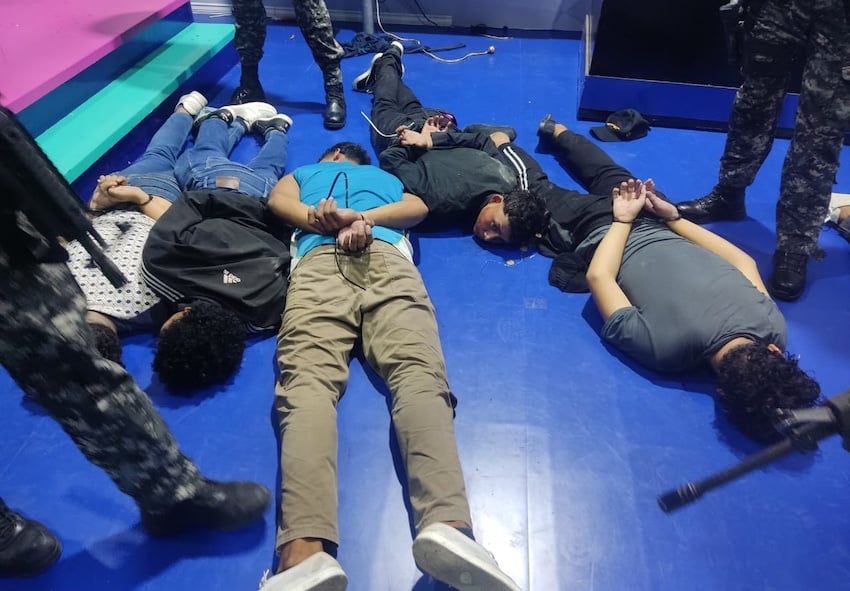
The most dramatic attack — or at least the one that has garnered the most attention — was an assault on a TV station in Guayaquil in which 13 armed men burst in on a newscast on Tuesday and proceeded to make threats and sow panic among employees as the cameras continued to roll, broadcasting the terror to thousands of homes across Ecuador.
Shots were fired, but no one was killed and the perpetrators were arrested by police and would face terrorism charges, according to Ecuadorian authorities.
The motive of the attack wasn’t immediately clear, but one of the aggressors was “heard saying that he wanted to send a message about the consequences of ‘messing with the mafias,'” the New York Times reported.
“But the police moved in before he could be wired up with a microphone,” the newspaper added.
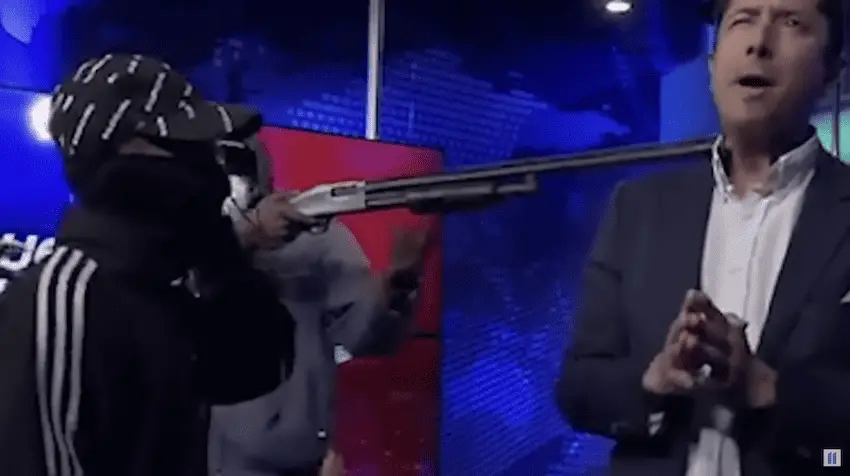
Before the TV station incident and other acts of violence on Tuesday, Noboa, who has been Ecuador’s president for less than two months, imposed a state of emergency in the country.
On Tuesday afternoon, he announced on social media that he had signed a revised executive decree declaring “the existence of an internal armed conflict” and establishing a “state of exception,” or state of emergency across the country, where violence has increased significantly in recent years.
The state of emergency will last 60 days and allows authorities to impose a nationwide curfew and use to the military to patrol streets and control prisons.
In his decree, Noboa identified 22 “transnational organized crime groups” as “terrorist organizations and belligerent non-state actors.”
He ordered the armed forces to carry out military operations, “under international humanitarian law and respecting human rights, to neutralize the identified groups.”
In an address on Monday, Noboa said that “the time is over when drug-trafficking convicts, hit men and organized crime dictate to the government what to do.”
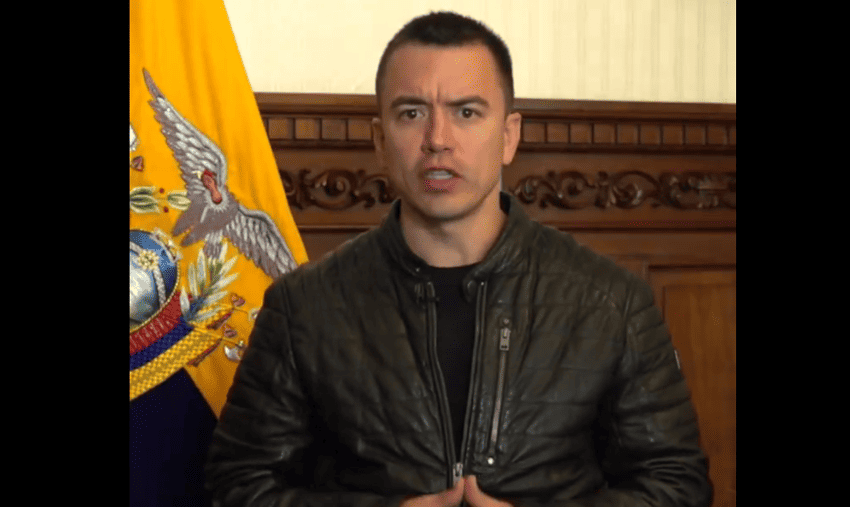
On Wednesday he said: “We are fighting for national peace. We are fighting against terrorist groups that are more than 20,000 people.”
At least 70 people had been arrested as of Wednesday morning, according to Ecuadorian police.
The head of the Ecuadorian Armed Forces Joint Command said Tuesday that recent attacks were a response to government operations against crime gangs.
“They have unleashed a wave of violence to frighten the population,” Admiral Jaime Vela told reporters.
Links between Ecuadorian gangs and Mexican cartels
Several of the crime groups named in Noboa’s decree have links to the Sinaloa Cartel and the Jalisco New Generation Cartel (CJNG), the Milenio newspaper reported Wednesday.
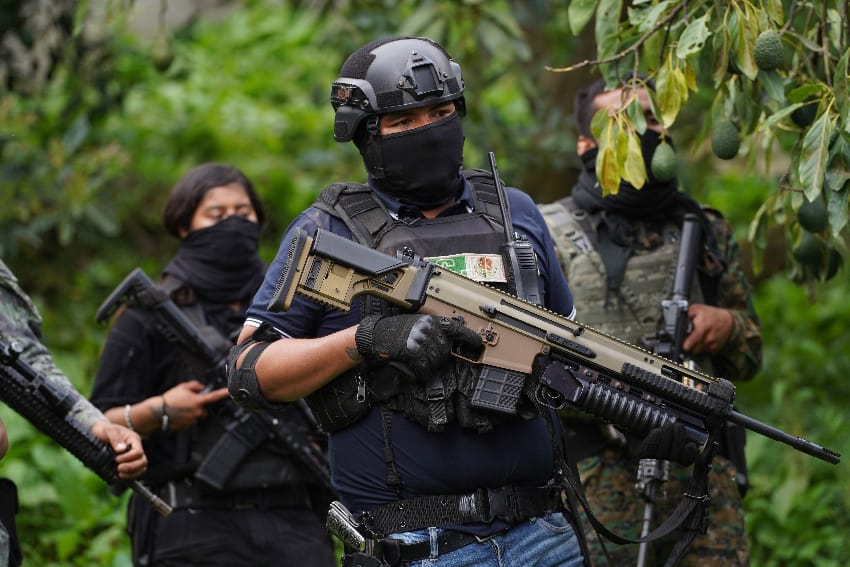
“According to the Ecuadorian armed forces, Mexican organized crime groups subcontracted local gangs,” Milenio said.
It said that Los Choneros is affiliated with the Sinaloa Cartel, while Los Lobos, Los Lagartos and Los Tiguerones are “armed wings” of the CJNG.
Los Choneros “is believed to have been one of the first Ecuadorean gangs to forge ties with Mexican drug cartels,” The New York Times reported.
Los Choneros, Los Lobos, Los Lagartos and Los Tiguerones “have a strong presence in the streets” of several provinces of Ecuador, “where they control drug dealing, extortion, contraband and executions,” Milenio said.
Christian Zurita, an Ecuadorian journalist who ran as a Movimiento Construye candidate in the 2023 presidential election after the party’s original candidate was assassinated in Quito last August, asserted that the Sinaloa Cartel and the CJNG are “jointly responsible” for the unprecedented wave of violence currently afflicting Ecuador.
He told the Proceso news magazine that the Mexican cartels supply weapons and cash to their Ecuadorian affiliates.
“Ecuador has become a center of distribution of drugs for the United States and Europe, which makes the [Mexican] cartels very present,” Zurita said.

The ex-candidate, who attracted 16% of the vote in the first round of last year’s election to finish third, said that Mexico should collaborate with Ecuador to combat the criminal groups that are active there, but expressed doubt that would occur.
AMLO: No Mexicans affected by the violence in Ecuador
President López Obrador said Wednesday morning that there hadn’t been any reports of Mexicans being affected by the outbreak of violence in Ecuador.
Foreign Affairs Minister Alicia Bárcena said on the X social media platform that the ministry she heads up is in contact with the Mexican Embassy in Ecuador and that the government is “ready to attend to the Mexican community that requires assistance and/or protection.”
On behalf of the government, López Obrador expressed solidarity with and support for the people and government of Ecuador.
“We wish with all our heart that peace is restored,” he told reporters at his regular news conference.
With reports from AP, The New York Times, El Financiero, Milenio and Proceso
